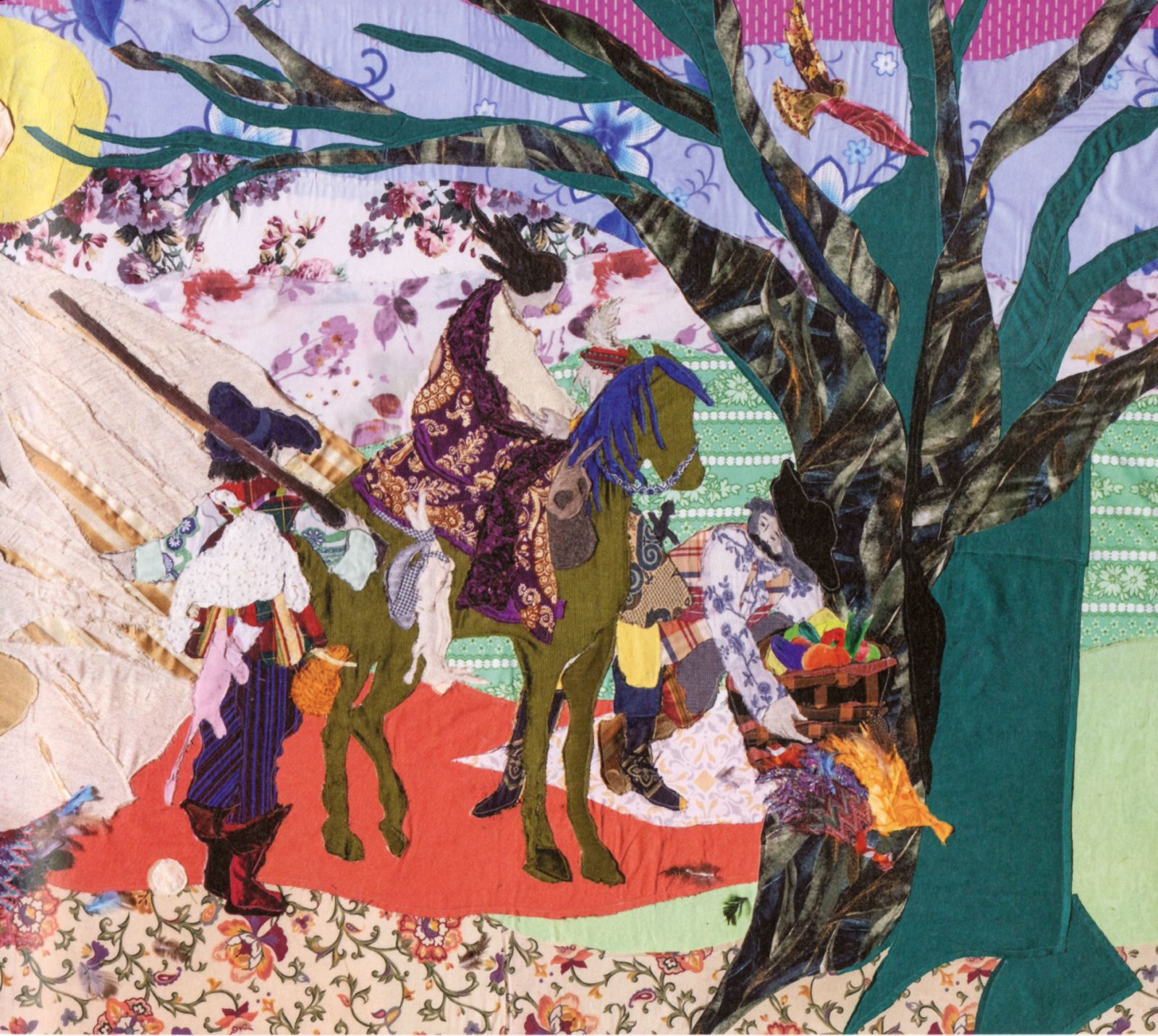Tavola rotonda
A Journey of Images and Life. Re-enchanting the World. A Round table Conversation on Małgorzata Mirga-Tas’s work in the Polish Pavilion of the 59th Biennale in Venice

A round table conversation on Małgorzata Mirga-Tas’s work in the Polish Pavilion of the 59th Biennale in Venice
Organized by the Kunsthistorisches Institut in Florenz – Max-Planck-Institut in collaboration with the Deutsches Studienzentrum in Venedig
Participants:
Małgorzata Mirga-Tas, the curators Joanna Warsza and Wojcieck Szymański, Bill Sherman (Warburg Institute, London), Angelika Stepken (Villa Romana, Florence) and Gerhard Wolf (Kunsthistorisches Institut in Florenz - Max-Planck-Institut), moderator
For many years, the Polish-Roma artist Małgorzata Mirga-Tas has been involved in depicting history and portraying everyday life in Roma settlements in Poland. Her works - sculptures, paintings, spatial objects and large-format textiles - are strongly and literally marked with individual and relational experience and collective Polish-Roma history, to mention only the Monument to the Memory of the Holocaust of the Romani, erected in 2011 in Borzęcin village, Brzesko County.
Re-enchanting the World, the project of Mirga-Tas for the Polish Pavilion at the 59th Venice Biennale, is an attempt to expand the Polish and European iconosphere and art history with representations of Roma culture. The title is inspired by Silvia Federici’s book Re-enchanting the World: Feminism and the Politics of the Commons (2019), which proposes re-enchanting as a way of recovering the idea of community and rebuilding relationships with others, including non-human actors: animals, plants, water or mountains.
Thus, re-enchanting - a non-violent process in which women play an important role - reverses the unfortunate fate of the world, taking off its evil spell and charm. Małgorzata Mirga-Tas has designed and realized a series of twelve large-format textiles that cover the walls of the Polish Pavilion in Venice. Referring to the title of the 59th edition of the Biennale (The Milk of Dreams), the artist has created a magical world, constantly subjected to re-enchantment.
The layout, form and motifs of the fabrics refer to the famous ‘calendar’ fresco cycle from the Renaissance Palazzo Schifanoia in Ferrara. It depicts astrological symbols, the deccan system, allegories of months and cyclicality, which are close to the signs and representations of Tarot cards used in Romani culture. The symbolism of the interior of the palace and the international migration of images across time and continents and their circulation - between India, Persia, Asia Minor, ancient Greece, Egypt and modern Europe - as described by Aby Warburg, become a visual and ideological point of reference for Mirga-Tas. The artist “appropriates” them and inscribes a specific Polish-Roman identity and vernacular historical experience in them. The project is based on the idea of transnationality, cyclicality, and the change of often appropriated meanings, proposing a new narrative about the cultural migration of images and mutual influences between Roma, Polish, and European cultures.
By constructing her own version of the Renaissance interior in the Polish Pavilion, the artist proposes a kind of temporary and adventurous asylum offering hope and respite to the viewers. The exhibition is a potential place for establishing new, temporary relations, a refuge beyond time and place, in which (as in Schifanoia, described by Warburg) the paintings collected by the artist reveal “beneath the manifold traces of their wanderings from age to age and from nation to nation, that a [...] heart still beats within them.”
(text based on curatorial statement of Joanna Warsza and Wojcieck Szymański; image taken from: Wojcieck Szymański, Joanna Warsza, Małgorzata Mirga-Tas, Re-enchanting the World, Berlin: Archive Books, 2022, p. 171 (detail))
18 novembre 2022, ore 18:00
Deutsches Studienzentrum in Venedig
Palazzo Barbarigo della Terrazza
S. Polo 2765/A, Calle Corner
Seating is limited. To participate please contact sekr_wolf@khi.fi.it.
Please note that it is required to wear a protective mask on DSZ premises.
Avviso
Questo evento viene documentato fotograficamente e/o attraverso riprese video. Qualora non dovesse essere d’accordo con l’utilizzo di immagini in cui potrebbe essere riconoscibile, da parte del Kunsthistorisches Institut in Florenz a scopo di documentazione degli eventi e di pubbliche relazioni (p.e. social media) la preghiamo gentilmente di comunicarcelo.


